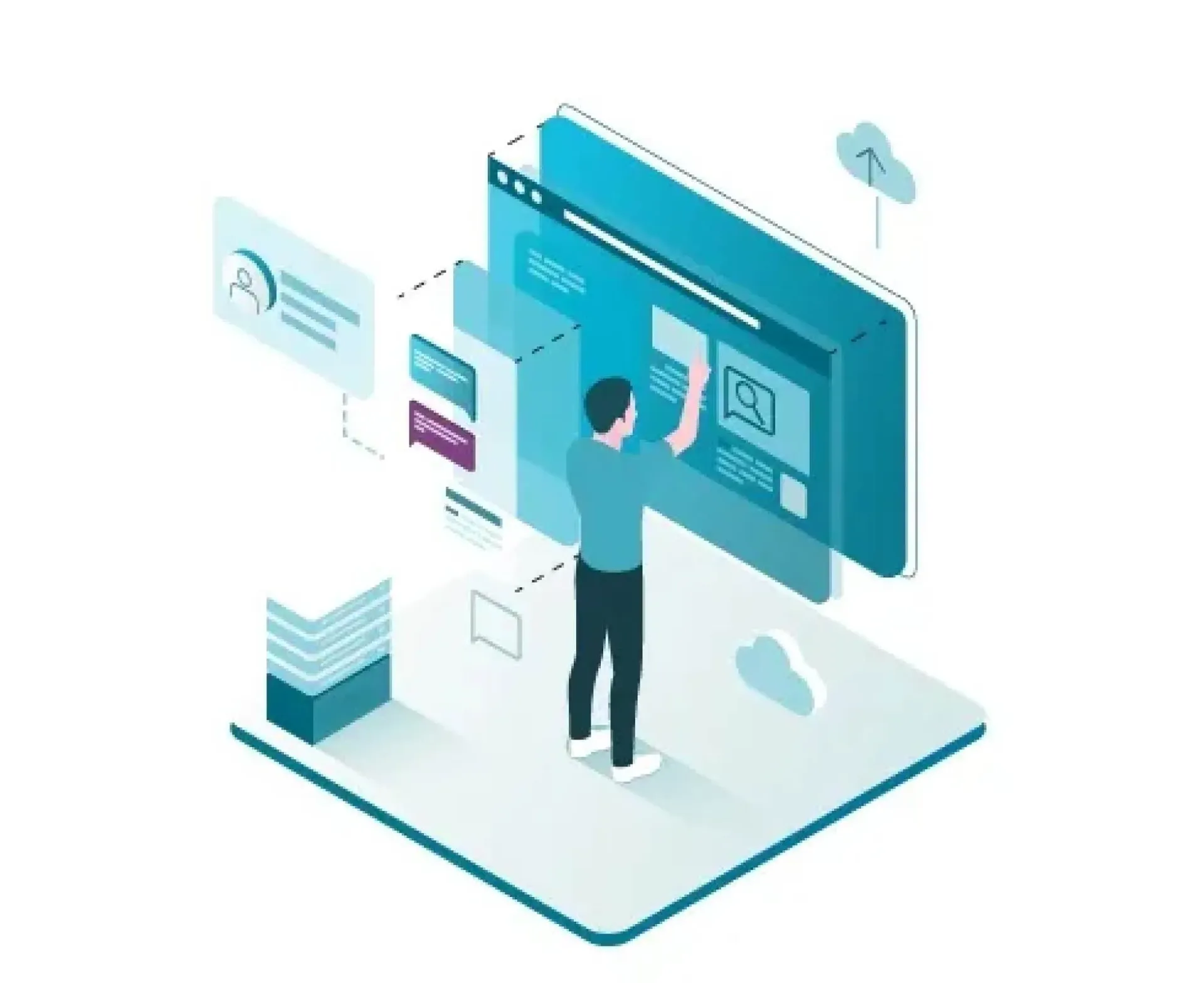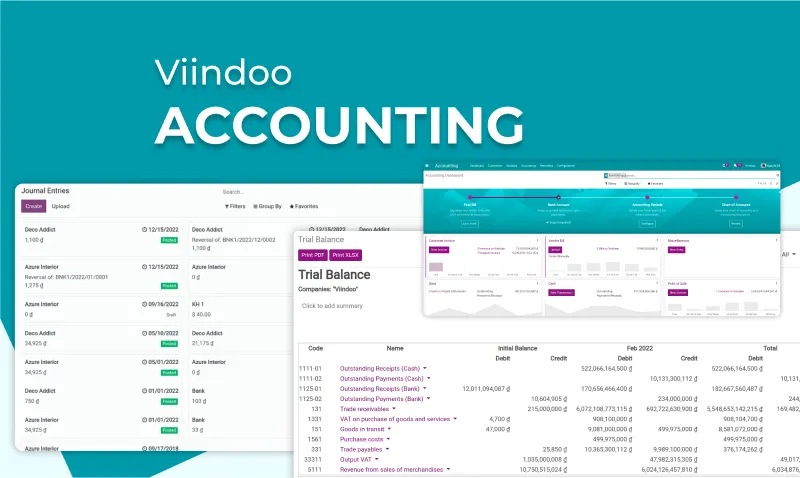In today's rapid business landscape, integrating accounting automation with modern practices is vital for strategic planning and efficient financial management. The age-old tasks of manual data entry, invoice processing, and financial reporting are being transformed by technological advancements, paving the way for a new era of streamlined, accurate, and agile financial management.
Accounting Automation, a revolutionary approach to handling financial processes, has become a pivotal tool for businesses seeking to optimize their operations, reduce errors, and enhance decision-making. This transformative technology complements and extends the capabilities of traditional Enterprise Resource Planning (ERP) systems, offering a specialized focus on automating and refining accounting tasks.
Join us as we navigate the landscape of automation, uncovering how businesses are leveraging their potential to achieve new heights of efficiency and financial excellence.
What is Accounting Automation?
Accounting automation refers to the use of technology and software to streamline and automate various accounting processes and tasks within a business or organization. This automation aims to reduce manual intervention, minimize errors, enhance accuracy, improve efficiency, and free up valuable time for finance professionals to focus on more strategic and analytical activities.
Accounting automation encompasses a wide range of functions, including but not limited to data entry, invoice processing, expense management, financial reporting, bank reconciliation, and tax calculations. By leveraging automation, businesses can optimize their financial operations, ensure compliance with regulations, and make more informed financial decisions based on real-time data and insights.

Accounting Automation Provides Numerous Substantial Advantages to Businesses
Accounting automation offers numerous significant benefits to businesses. Here are some reasons why implementing accounting automation is important:
Enhanced Efficiency and Accuracy
Automation or reduces manual tasks, enhancing work efficiency and lowering the risk of errors. Automated processes are capable of completing tasks faster and more accurately than manual execution.
Time Savings
Automation helps to reduce the time needed for accounting tasks. This allows employees to allocate more time to tasks that bring true value to the business.
Improved Data Management
Automation systems help manage accounting data more effectively. Data is automatically input, processed, and organized in an organized manner, making it easy to retrieve and analyze later.
Process Optimization
Automation allows for the optimization of accounting processes by eliminating unnecessary steps and streamlining workflows. This increases work efficiency and minimizes completion time.

Easy Integration
Accounting automation solutions often allow integration with other systems such as Customer Relationship Management (CRM), Human Resource Management (HRM), and Enterprise Resource Planning (ERP) systems, creating seamless connectivity across various aspects of the business.
Analysis and Prediction
Some accounting automation solutions use Artificial Intelligence (AI) and machine learning technology to analyze financial data, predict trends, and provide detailed insights for more effective decision-making.
Compliance and Financial Reporting
Accounting automation aids in automatically generating reports, tracking legal regulations, and financial accurate and timely compliance with reporting requirements.
In summary, accounting automation optimizes accounting processes, accounting work efficiency, and ensures accuracy in financial tasks, enabling businesses to focus on growth and strategy.
Popular solutions for accounting automation
Here are some popular solutions for accounting automation and their comparison:
Traditional Accounting Software
- Pros: This is a common and widely used option with a track record spanning several years. It provides tools for managing various aspects of accounting, including ledger management, invoicing, expenses, and financial reporting.
- Cons: The main drawback of traditional accounting software is the need for manual tasks. This can lead to errors, time consumption, and reduced efficiency.
 Traditional Accounting Software
Traditional Accounting Software
Cloud-based Accounting Software
- Pros: Accessible from any device with an internet connection, making remote work more feasible. Data is stored directly in the cloud, reducing the risk of data loss due to hardware failures.
- Cons: Reliant on internet connectivity. Connectivity issues can sometimes disrupt work. The reliability of the service provider is also a significant factor.

Cloud-based Accounting Software
Robotic Process Automation (RPA)
- Pros: RPA allows the automation of manual tasks using computer "robots". This speeds up task execution and minimizes errors.
- Cons: To deploy and maintain RPA, users need technical knowledge. Additionally, RPA is suitable for repetitive and simple tasks, not complex processes.

Robotic Process Automation (RPA)
AI and Machine Learning in Accounting
- Pros: AI solutions are capable of analyzing large datasets and predicting financial trends. They can automatically identify patterns and key insights from data, improving decision-making and financial forecasting.
- Cons: To achieve good results, high-quality input data is required. Moreover, deploying and managing AI systems requires in-depth technical knowledge of both AI and accounting.

AI and Machine Learning in Accounting
Blockchain in Accounting
- Pros: Blockchain ensures the integrity and security of financial data. All transactions are recorded in a blockchain and cannot be altered, reducing the risk of fraud.
- Cons: To apply blockchain, businesses need a clear understanding of how the technology works and establish relevant usage rules.
Automated Accounting through APIs
- Pros: APIs enable data integration and sharing between different systems. This automates the process of sharing financial information between departments within a business or between different businesses.
- Cons: To make the most of APIs, programming and system integration knowledge is required.
Cognitive Accounting
- Pros: This solution uses AI to handle complex accounting tasks, such as financial analysis, future forecasting, and automated forecast adjustments based on new data.
- Cons: To successfully implement this, deep expertise in both accounting and AI is necessary. It's a complex and potentially costly solution.
Relationship between ERP and accounting automation
Enterprise Resource Planning (ERP)
- ERP is a comprehensive management system that integrates various processes and activities in an enterprise, including resource management, production, marketing, human resource management and accounting.
- ERP creates a unified system for all departments and functions in the enterprise, allowing for more efficient sharing of information and data.
- ERP provides a broader layer of knowledge, helping management better understand business operations and make strategic decisions.
Accounting automation
- Accounting automation involves using technology to automate accounting tasks, including data entry, invoice processing, financial reporting, and tax management.
- The main goal of Accounting Automation is to reduce the time and effort required to perform manual accounting tasks, thereby increasing accuracy and efficiency.
- Accounting automation focuses on generating accurate financial data and reports, providing the information needed for financial decision-making.
Relationship between ERP and Accounting automation
- ERP usually includes accounting and financial management modules and can combine the features of Accounting Automation in these modules.
- Accounting automation typically focuses on specific accounting tasks and can be integrated into an ERP system to enhance automation.
ERP is a comprehensive management system for an entire business, while Accounting Automation is concerned with automating specific accounting tasks. An ERP system can integrate the features of Accounting Automation and various management aspects to provide a total solution for the business.
Key advantages of an ERP system over a standalone accounting automation solution.
ERP systems offer a number of unique benefits that stand-alone accounting automation solutions cannot provide. Here are some advantages that ERP can bring:
Comprehensive integration
ERP integrates many different aspects of a business, including resource management, manufacturing, sales, human resources, project management, and more. This creates a connected system that allows data to flow smoothly between different departments and processes.


Data Integration
ERP provides comprehensive integration of accounting and financial data with data from other departments and processes within the business. This helps to create both an overview and insight into the state of the business.
Business Process Management
ERP supports end-to-end management of business processes, not just accounting. This improves inter-departmental interaction, optimizes workflow, and establishes tighter connections.


Comprehensive reporting
ERP provides comprehensive reports on the financial position and business performance. This provides management with a clear and reliable view of the overall business performance.
Integrated Project Management
ERP enables project management, from resource management, planning, cost management to scheduling and progress tracking. This supports efficient resource allocation and management.


Human Resource Management
ERP integrates human resource management, including payroll, time management, and employee development. This gives a holistic view of the enterprise's workforce.
Scalable Customization
ERP systems often allow customization to meet specific business requirements. This makes ERP flexible and adaptive to changes in the business environment.

In short, ERP not only automates accounting processes but also establishes strong connections between different aspects of the business, providing a comprehensive overview and management support.
Addressing Accounting Automation Requirements with Distinct ERP System Features
Specific features within an ERP system can cater to accounting automation needs. Here are some key features of an ERP system that contribute to accounting automation:

General Ledger Management
- Automates the recording and tracking of financial transactions across accounts.
- Generates financial statements like balance sheets and income statements automatically.
Accounts Payable Automation
- Automates invoice processing, approval workflows, and payment scheduling.
- Reduces manual data entry and improves accuracy in vendor management.
Accounts Receivable Automation
- Automates invoice creation, delivery, and payment tracking.
- Enhances the management of customer accounts and payment collections.
Expense Management
- Automates the capturing and approval of employee expenses.
- Streamlines reimbursement processes and reduces errors.
Bank Reconciliation
- Automates the reconciliation of bank transactions with accounting records.
- Helps identify discrepancies and maintain accurate financial records.
Financial Reporting
- Generates standardized financial reports automatically, including balance sheets, income statements, and cash flow statements.
- Allows for customization of reports based on specific business requirements.
Tax Management
- Automates tax calculations, deductions, and compliance.
- Ensures accurate tax reporting and reduces the risk of penalties.
Intercompany Transactions
- Automates processes related to transactions between different entities within the same organization.
- Enhances accuracy in recording intercompany activities.
Fixed Assets Management
- Viindoo systems automate fixed asset management by recording asset details, calculating depreciation, and maintaining historical records.
- This ensures accurate reporting and compliance with accounting standards.
Integration with Banking Systems
- Automates the synchronization of financial data with banking systems.
- Facilitates seamless cash flow management and reduces manual data entry.
Workflow Automation
- Automates approval workflows for financial processes.
- Improves efficiency by eliminating bottlenecks and manual intervention.
Budgeting and Forecasting
- Automates budget creation, monitoring, and forecasting.
- Enables real-time tracking of financial performance against targets.
In essence, ERP systems bring a multitude of automation features that embrace data from various financial and operational activities, allowing for seamless integration, accurate reporting, and optimized financial management.
In summary, the integration of both Accounting Automation and ERP systems represents an effective synergy of technology and financial management within businesses. This collaboration not only optimizes accounting processes but also provides an overarching view of business operations and related aspects. From automating transaction recording to managing fixed assets and budget balancing, both Accounting Automation and ERP offer significant benefits, enabling businesses to seize opportunities and navigate challenges in a rapidly evolving business landscape.
>>>> Read More:
